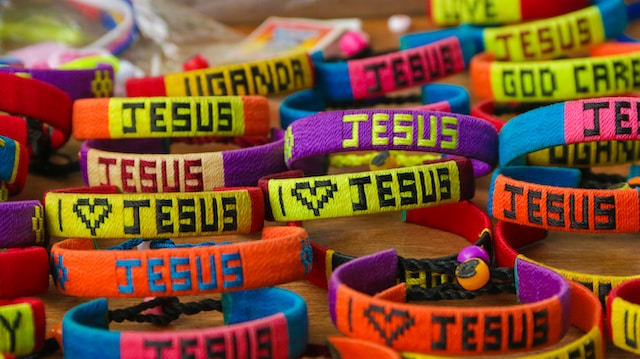You know what the letters “WWJD” mean right? They stand for “What Would Jesus Do?” But do you know the history of this? How long ago do you think it was when this phrase was first coined?
Would you believe it was 1886?
That is the earliest known instance of the phrase. It all started when a minister from Topeka Kansas, Charles Sheldon, started a Sunday night sermon series at his church. Each sermon would involve a character or group of characters who found themselves in some sort of moral dilemma. Sheldon would end each sermon on a cliffhanger for the characters, and he would ask the question “What would Jesus do?” to the congregation. People would have to come back to hear the rest of the story each Sunday if they wanted to know how it all panned out.
Sheldon called himself a Christian socialist. He absolutely hated capitalism, believing that way of life was ruled by greed. He supported gender equality and racial equality (remember this was over a hundred years ago). He was a vegetarian and supported the humane treatment of animals. He encouraged women in his congregation to get involved in political movements that focused on equal rights. And he was one of the very few white ministers of the time that openly invited people of color to become full members of his church.
Sheldon’s cliffhanger sermons became very popular, and he was encouraged to publish them in book form. You can get a copy of this book for yourself today if you want. It is called “In His Steps: What Would Jesus Do?” The book became a bestseller but he didn’t get much money from it due to a copyright issue. That didn’t bother him in the least, since he cared far more about people getting his message than making any money. The publishers of the book made a lot of money off of him though, and they sent him thank-you money totaling about $10,000.
That is where this phrase stood for a long time. It didn’t become popular again until a youth leader in Holland Michigan, Janie Tinklinberg, read Sheldon’s book and became inspired by the message within. In 1989 she decided to tell her church youth about it and got a bunch of bracelets made for them to wear so they wouldn’t forget the phrase. She had to shorten it to just he first letter of each word because the whole phrase wouldn’t fit on bracelets. This turned out to be a great move for Tinklenburg, as people who saw the bracelets would ask what the letters meant, giving them a good opportunity to evangelize.
Ms. Tinklenburg’s “WWJD” idea caught fire. The original order of 300 bracelets weren’t nearly enough. She ordered hundreds more. The company that made them, Lesco, saw what was happening and decided to make millions of their own merchandise with the letters on it. Other companies did the same thing, piling onto the WWJD phenomenon. WWJD was soon to be found everywhere.
You saw it on bracelets. You saw it on shirts and other articles of clothing. A movie was made. There were posters and even a WWJD board game. I’m not kidding. There is actually a board game for this that you can still buy. Here is what the description of that game says:
his group discussion game challenges you to look at the role of Jesus in your life as you explore over 600 thought-provoking questions. Each question deals with life’s everyday dilemmas and provides answers on how you might respond to them. Would you take the easy route in these situations or ask the ultimate question- What Would Jesus Do?
Start the challenge now! Answer a question and receive points for players who correctly predict your answer. As you gain points, win special letter tokens. Be the first to collect W,W,J, and D and you win the game! Learn more about your friends, family, and yourself in this controversial and conversational game.
Charles Sheldon hated the greed that can be a by-product of capitalism. His book made a lot of money for other companies. Janie Tinklenburg soon found herself in a similar situation.
What would Jesus think about all of this?
Mark 11:15-17
15 On reaching Jerusalem, Jesus entered the temple courts and began driving out those who were buying and selling there. He overturned the tables of the money changers and the benches of those selling doves, 16 and would not allow anyone to carry merchandise through the temple courts. 17 And as he taught them, he said, “Is it not written: ‘My house will be called a house of prayer for all nations’? But you have made it ‘a den of robbers.’”
I think we know what Jesus would think.
Tinklenburg decided to try to trademark WWJD when she saw a necklace with those letters selling for $400. She saw this whole thing getting out of hand and wanted to make sure it didn’t just become a commercialism stunt. But she was told that she had waited too long and the phrase was now in the public domain so her request was denied. The Zondervan publishing company actually tried to trademark it themselves.
When we ask ourselves what Jesus would do, it would be good to actually see that through, wouldn’t it?
God Bless

